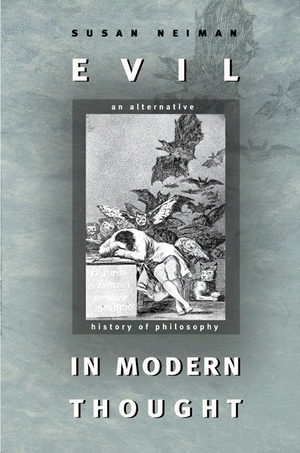 I am currently teaching a course at Azusa Pacific University on "God, Evil, and the Meaning of Life in Contemporary Cinema".
I am currently teaching a course at Azusa Pacific University on "God, Evil, and the Meaning of Life in Contemporary Cinema".My approach to this course is based on the historical analysis of Susan Neiman and Julian Young. Neiman argues that the history of post-Enlightenment philosophy can be read as an attempt to solve the problem of evil. Here, “the problem of evil” means not just the problem of how a good God could allow evil to exist, but means something closer to the problem of the meaning of life: how are we to make sense of the world and our place in it? Young gives a complementary analysis of contemporary philosophy as the attempt “to respond to the question of what can be said about the meaning of life in the light of the death of the God of Christianity”.
 But if contemporary philosophy is about the problem of evil and the meaning of life, then contemporary philosophy is done as much through cinema as it is through academia. So in this course we're watching movies such as Diary of a Country Priest, Crimes and Misdemeanors, No Country for Old Men, etc. and analyzing them in juxtaposition to the thought of philosophers such as Hegel, Schopenhauer, Kierkegaard, Nietzsche, Heidegger, etc.
But if contemporary philosophy is about the problem of evil and the meaning of life, then contemporary philosophy is done as much through cinema as it is through academia. So in this course we're watching movies such as Diary of a Country Priest, Crimes and Misdemeanors, No Country for Old Men, etc. and analyzing them in juxtaposition to the thought of philosophers such as Hegel, Schopenhauer, Kierkegaard, Nietzsche, Heidegger, etc.In the weeks to come, I plan to blog my reflections on the films. I hope you enjoy reading my thoughts, and I look forward to reading any comments you post in response.


No comments:
Post a Comment